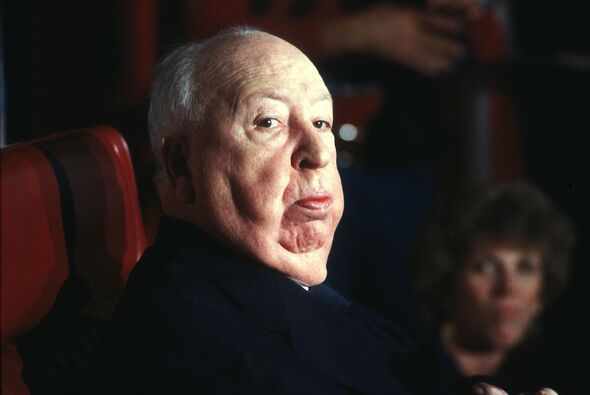Entertainment
Alfred Hitchcock’s Fallout with Michael Caine Over Controversial Film

The tumultuous relationship between legendary filmmaker Alfred Hitchcock and acclaimed actor Michael Caine took a bitter turn in the early 1970s over a controversial film project. The tension stemmed from Caine’s refusal to star in Frenzy, which became notorious for its graphic violence and sexual content. Their falling out not only ended a potential collaboration but also left a lasting impact on both their careers.
In 1972, Hitchcock sought to cast Caine in what would become his first film shot entirely in England since Stage Fright in 1950. The director was keen on featuring the rising star, who had already gained international fame with films like Alfie and The Italian Job. However, Caine was appalled by the film’s premise, which revolved around a serial killer and included multiple nude scenes.
Caine expressed his ethical concerns, stating, “He offered me the part of a sadist who murdered women and I won’t play that. I have a sort of moral thing and I refused to play it. He never spoke to me again.” His strong moral stance ultimately led to his rejection of the role, which was later filled by Barry Foster.
The film, adapted from the novel Goodbye Piccadilly, Farewell Leicester Square, drew inspiration from the infamous unsolved crimes of Jack the Ripper, who terrorized London in the 1880s. Despite its dark subject matter, Frenzy was released in 1972 to commercial success, grossing over $12 million at the box office against a budget of $2 million. Critics have since praised the film for its unique blend of humor and horror.
Interestingly, Caine later starred in films that explored similar themes, such as Dressed to Kill and The Hand. Yet, his public persona remained one of respect for Hitchcock, despite their fallout. Caine recounted that he and Hitchcock would frequently cross paths at Chasen’s restaurant in Los Angeles, where the director would ignore him completely.
Hitchcock’s daughter also disapproved of Frenzy, refusing to let her children watch it, highlighting the contentious nature of the project. The film’s release marked a significant moment in Hitchcock’s career, as it showcased a shift towards more explicit content, drawing criticism from various quarters.
On March 7, 1979, Caine and his wife Shakira attended the Seventh Annual American Film Institute Lifetime Achievement Awards honoring Hitchcock at the Beverly Hilton Hotel. While the two men remained estranged, their presence at the event served as a reminder of their once-promising relationship and the potential that was lost.
In retrospect, the clash between Hitchcock and Caine illustrates the complexities of artistic collaboration and the moral dilemmas faced by actors. Despite the bitter end to their professional relationship, both figures left an indelible mark on the film industry, shaping the landscape of cinema for generations to come.
-

 Lifestyle5 months ago
Lifestyle5 months agoLibraries Challenge Rising E-Book Costs Amid Growing Demand
-

 Sports4 months ago
Sports4 months agoTyreek Hill Responds to Tua Tagovailoa’s Comments on Team Dynamics
-

 Sports4 months ago
Sports4 months agoLiverpool Secures Agreement to Sign Young Striker Will Wright
-

 Lifestyle4 months ago
Lifestyle4 months agoSave Your Split Tomatoes: Expert Tips for Gardeners
-

 Lifestyle4 months ago
Lifestyle4 months agoPrincess Beatrice’s Daughter Athena Joins Siblings at London Parade
-

 Science4 months ago
Science4 months agoSan Francisco Hosts Unique Contest to Identify “Performative Males”
-

 World4 months ago
World4 months agoWinter Storms Lash New South Wales with Snow, Flood Risks
-

 Science5 months ago
Science5 months agoTrump Administration Moves to Repeal Key Climate Regulation
-

 Business5 months ago
Business5 months agoSoFi Technologies Shares Slip 2% Following Insider Stock Sale
-

 Science5 months ago
Science5 months agoNew Tool Reveals Link Between Horse Coat Condition and Parasites
-

 Sports4 months ago
Sports4 months agoElon Musk Sculpture Travels From Utah to Yosemite National Park
-

 Science5 months ago
Science5 months agoNew Study Confirms Humans Transported Stonehenge Bluestones









